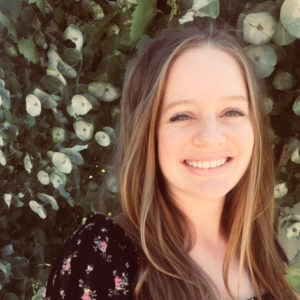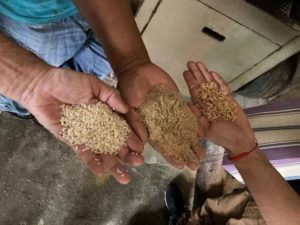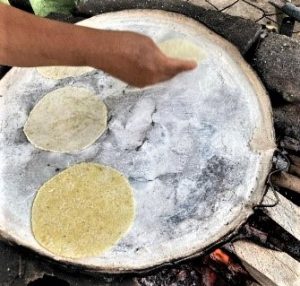Story by Aiko Link
 Annika Weber, a Ph.D. student in the Department of Food Science and Human Nutrition at Colorado State University, found her passion for public health and nutrition while on her journey from her undergraduate degree to her Ph.D. program at CSU.
Annika Weber, a Ph.D. student in the Department of Food Science and Human Nutrition at Colorado State University, found her passion for public health and nutrition while on her journey from her undergraduate degree to her Ph.D. program at CSU.
Weber earned her undergraduate degree in biochemistry at California Lutheran University, then received a National Science Foundation fellowship to conduct a medical diagnostic research project in Dublin, Ireland. Before making the weighty decision to commit to a graduate program, Weber decided to take a break. On hiatus between degrees, she taught English to children in Spain and fell in love with traveling and being hands-on with communities. As a result, she decided to concentrate on the field of public health and nutrition, first in pursuit of a Master of Science in human nutrition at the University of Sheffield in England and now as a Ph.D. candidate in the Department of Food Science and Human Nutrition at CSU.
Researching the benefits of rice bran
Weber is currently researching human nutrition and global health, specifically the food ingredient rice bran in Associate Professor Elizabeth Ryan’s lab. Ryan is a faculty member in the Department of Environmental and Radiological Health Sciences in the College of Veterinary Medicine and Biomedical Sciences.

Rice bran is the outer layer of brown rice that is milled off in processing. This ingredient is often discarded, though it contains many nutrients and has numerous health benefits for the human microbiome.
Weber’s current project involves analyzing locally produced, ready-to-use therapeutic foods with rice bran to treat children with severe acute malnutrition in Indonesia. “As rice bran is a nutrient-dense food product, we predict that it will help improve the gut microbiomes of children with malnutrition and help prevent relapse in children recovered from malnutrition,” said Weber. “We also hope that this type of intervention could have long-term benefit for these communities as rice bran is locally accessible and available around the world.” Weber plans to travel to Indonesia this summer to run clinical trials.
Passion for nutrition and global health

In another project, Weber traveled to Trifinio, Guatemala, to assess food insecurity and malnutrition. The team conducted interviews and toured local rice mills to see how rice is processed. In addition to these projects, her experiences teaching English in Spain and working on a farm in Argentina have intensified her passion for working with communities to find better ways to eat and live.
These research projects are fueled by Weber’s passion for human nutrition and global health, especially how gut health may improve the lives of malnourished children. According to Weber, Kim Cox-York, CSU’s research integrity officer and assistant professor in the Department of Food Science and Human Nutrition, as well as Dr. Ryan have been instrumental mentors as she encounters some of the most challenging problems of our time.
After earning her doctorate at CSU, Weber hopes to work as a research scientist for an international health organization and continue to improve access to nutrient-dense foods.
The Department of Food Science and Human Nutrition is part of CSU’s College of Health and Human Sciences.